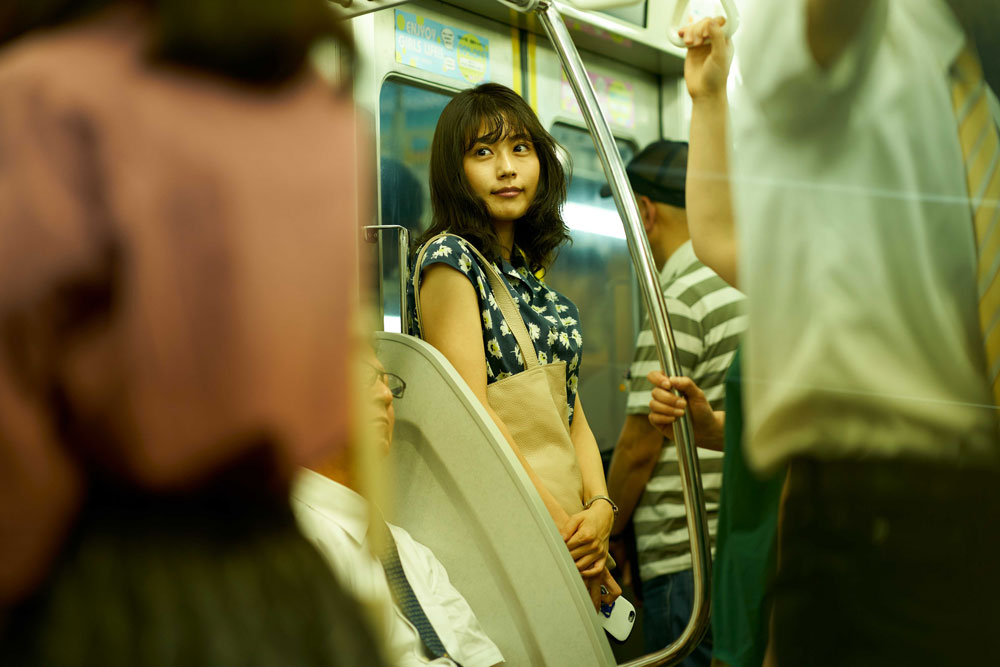!["I fell in love like a bouquet" The presence of Yuji Sakamoto, a screenwriter who changed director Hiroyasu Doi's "preparedness to challenge movies" [Director's Interview Vol.103]](https://cinemore.jp/images/f4e6da451b75a726409f98d0c2eb65c98dcd06ab8fdb76c2d8e9b565d8607ec3.jpg)
"I fell in love like a bouquet" The presence of Yuji Sakamoto, a screenwriter who changed director Hiroyasu Doi's "preparedness to challenge movies" [Director's Interview Vol.103]
For the first time, I was freed from my “destiny” and was able to face the work in my own way.
Q: Director Doi seems to move back and forth between the formats of "film" and "television drama" and continue to create masterpieces in both. Are there any differences in your own approach?
Doi: I've loved movies since I was young, and I think being involved in movies is something out of the ordinary, like a dream job. When I work on a movie, I try to be the only one who fits in with the movie staff as much as possible.
Nowadays, filming equipment is not that different between movies and dramas, so of course it is possible to shoot a movie with drama staff, but when I do a movie, I want to know the perspective of the people who have made movies in their culture and I want to learn from them. That's why I'm not afraid to go in alone.
The director of photography this time, Kamakari Yoichi, was a young cameraman in his 40s, but I was really inspired by his perspective and ideas, and it was a really great experience.

(c)2021 “Love Like a Bouquet” Production Committee
Q: Many directors try to keep their staff the same as much as possible, so Doi's approach is unusual.
Doi: I think there is a certain part of me that yearns for movies (laughs). Also, I've been doing this job for about 30 years now, so I feel like I need to keep updating myself. To do that, I think it's really important to meet a variety of people.
In terms of "encounters," I continued working on TV dramas after " Flying Colors ," but in the meantime I worked with screenwriter Nogi Akiko on "Reprint!" and " We May Be Ashamed to Run Away , But It's Useful," and with Sakamoto-san on " Quartet ." I was really happy that this flow naturally led to the films " Voice of Sin " and "We Made a Bouquet of Love."
Q: When you read the script for "We Made a Bouquet of Flowers," did you notice any differences between the TV drama and the movie?
Doi: I didn't feel that it was "movie-like" or "drama-like," but when you're working on a TV drama, you're often expected to make it "easy to understand," and I've gotten used to that state of affairs. From that perspective, I think that the "conversation that only the two of you can understand," which I mentioned earlier, would be considered "no good because not everyone can understand it" in a TV drama. I think the fact that this is allowed is a good thing about movies.
Also, time is limited in movies, so I think it's very important to allow the audience to imagine "spaces" as much as possible. That's something I'm always conscious of when making a movie, and how to overcome the high wall that is movies. Because I've always worked in the world of television, I always need to be a little "prepared" when taking on a movie.
However, this time, I may have been the least "tensioned" I've ever been. Rather than making a movie, the only theme was how I would interpret and approach Sakamoto-san's script. The fate of "television and film" - well, maybe this is something I've imposed on myself - I was able to be freed from that a little and think purely about the work. As a result, when it was finished, I felt like it was something that was most like me.
Q: That's a wonderful story. What do you think is the appeal of the stories that Sakamoto-san weaves?
Doi: I think it's the way it shines a light on people who are not mainstream, who are not in the center, who don't have a voice. Mugi and Kinu in this story are people who would not normally be the main characters.
Even though Mugi-kun gets a job and things start to change little by little, she never rejects him. I feel Sakamoto-san's kindness towards people in that way, and I wanted to protect that. Neither of them is the villain, and you can sympathize with both Kinu's and Mugi's positions equally, which is wonderful.
It became a kind of “problem film” that is rare in modern Japanese films.

